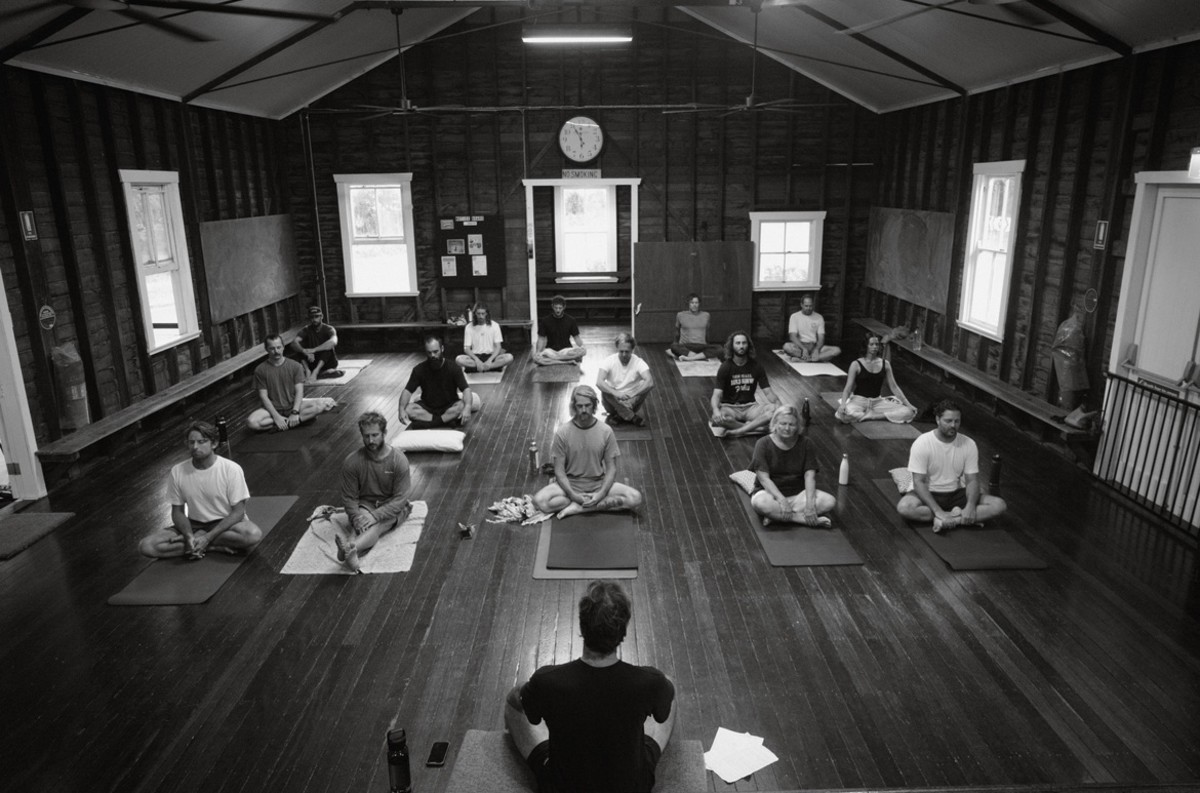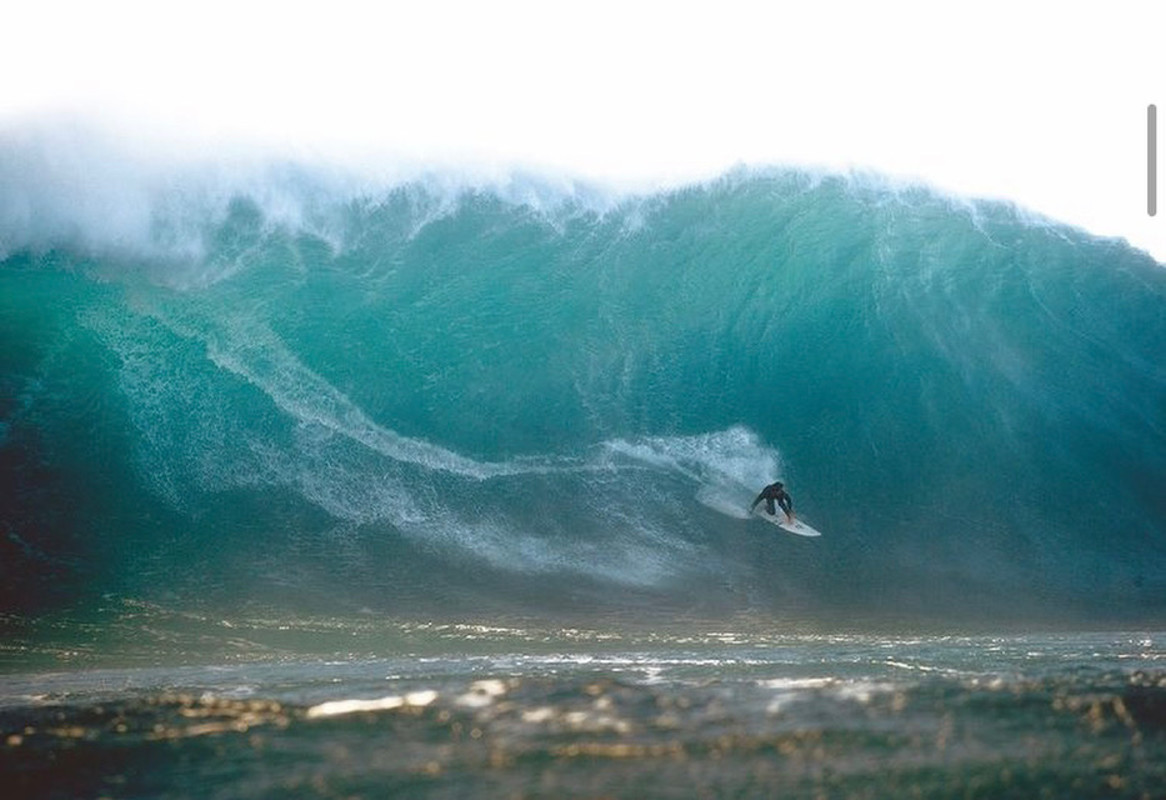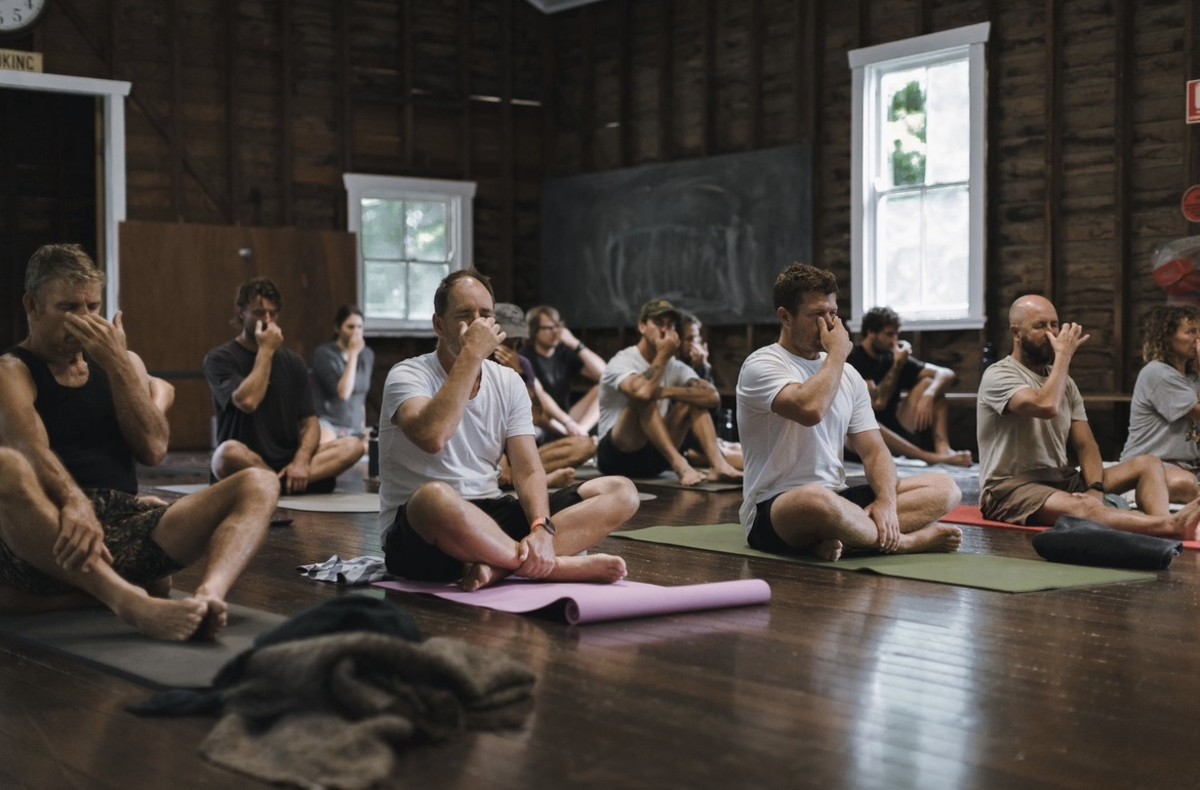You may have heard of Brett Burcher. Though many surf fans probably haven’t. Burch was one of those quintessential big-wave chargers who spent the last decade hovering just under the radar. Everyone now again footage and images would show him charging big wave slabs at home on the South Coast of NSW, in Western Australia, Tasmania or Ireland. He was a talented, stylish surfer, that just happened to be ready to charge any wave that came his way.
He was also a deep thinker and his lack of a lack of awareness perhaps meant he didn’t push himself hard enough into the limelight. Many elite big-wave riders said he was one of the most underrated big-wave surfers they’d ever surfed with. During his 20s he just about made a living on the edge of professional surfing, through his freesurfing, writing and filmmaking. Eventually, he retrained as a teacher and disability worker but remained an underground big-wave charger. As such he thought he knew fear and how to deal with it. Till in his late 20s, he didn’t.
It was anxiety and mental health issues that led him into breath work, first personally, then professionally. Now he runs courses designed to offer a safe and natural healing process, where conscious breathing patterns can induce physical, emotional, mental and spiritual healing. And help you deal with a 10-footer on the head. He works with individuals, athletes and does corporate training and community-based courses in schools and boardriders clubs.

Photo courtesy Brett Burcher
SURFER: Can you explain how you got into teaching breathwork?
Brett Burcher: I think all the experiences the paths I’ve gone down, the people I’ve met, the writings I’ve done, the waves I’ve caught kind of led me to it. I’d surfed, written, filmed and eventually became a school teacher and so being able to teach something that I’m passionate about and to help people was incredible.
Did you start doing it originally as part of your big-wave surfing?
Partly, we used to do breathwork in the pool work to simulate a big wave environment. So I understood the conditioning effects it had. Then I trained with the breath guru Nam Baldwin and his Breath Enhancement Training courses, but I’d say that was still focused on my surfing and the physical aspect of it. I didn’t use it away from the pool. It wasn’t till I used it for my mental health that I really became involved.
What was the catalyst for that?
In my late 20s, I experienced my first panic attacks. I’d moved to Sydney after university, doing my first teacher placement. It was stressful and I was getting physically sick from all the classroom germs. I was deteriorating physically, and then my mental state followed. After about two months I was visiting my partner in Sydney and experienced a panic attack.
Have you ever experienced those issues before?
No, never. I kind of thought I had my shit together and that just showed me that it was creeping up on me. I mean it was a self-diagnosed panic attack. I don’t go to a doctor or anything, but I was perceiving threats that weren’t there. I also just associated nighttime with fear and going to bed became like the most heightened time of my day. I got fucking terrified of going to bed. It was scarier than any slab or big wave I’d surfed.

Photo: Steve Wall
How did you overcome it?
Well, it was the most challenging thing I experienced. And I thought it was a really complex problem, so I went looking for complex answers. But eventually, something led me back to the breath. And then I just ended up using my breathing to regulate myself and give myself pockets of energy and pockets of relaxation and focus during the day. From there I began learning and experimenting, initially as a supportive tool for my anxieties. With my teaching background, it made sense to see if I could help other people with similar issues once I’d done more training.
I’d imagine that experience helps you deal with a wider range of issues and clients, outside of surfing.
Absolutely. Some people use it to release past traumas or deal with anxiety. Others have more broad issues. Look everyone’s a bit under the pump, and it’s just a very gentle way of helping. It’s not like you’re going to have to reinvent the wheel. You’re just adjusting something that you already do 20,000 times a day anyway. What I’m trying to give them is techniques relevant to their life and that are fit for purpose. I’ve spent enough time with hundreds of classes of 10 and 20 people, to know that everyone breathes differently and each individual can get vastly different takeaways from the same course. That’s the beauty of it. I really believe every breath can be a vote for the person you want to become.

Photo courtesy Brett Burcher
Do you do surf-specific courses?
For sure. I was just lucky enough to be on a Mentawai boat trip where we did a breath work and movement course on the boat. I’ve also recently done surf retreats down on the South Coast of NSW with Takkesh Mizoguchi-Thorne that take in breathwork, movement and bodywork, plus surf technique coaching and video analysis. No matter what your level, the goal is to raise your performance and connection in the water, and have plenty to implement in your everyday life.
And how far do you think you can take this?
I’m in my 30s now, with a wife and kid and it’s great to teach something I’m passionate about. It feels like it’s worth sinking my teeth into and focusing on, which I’ve struggled with. I think many people are on the precipice of a new wellness. Now that might be a loaded term, but it means people are opening their minds to the benefits of doing some self-work. The breathwork helped me through a tough stage of my life, the goal is to do the same for as many people who ask for it. Developing a relationship with and understanding of the breath, gently places the potential treatment tools in the hands of the individual.

